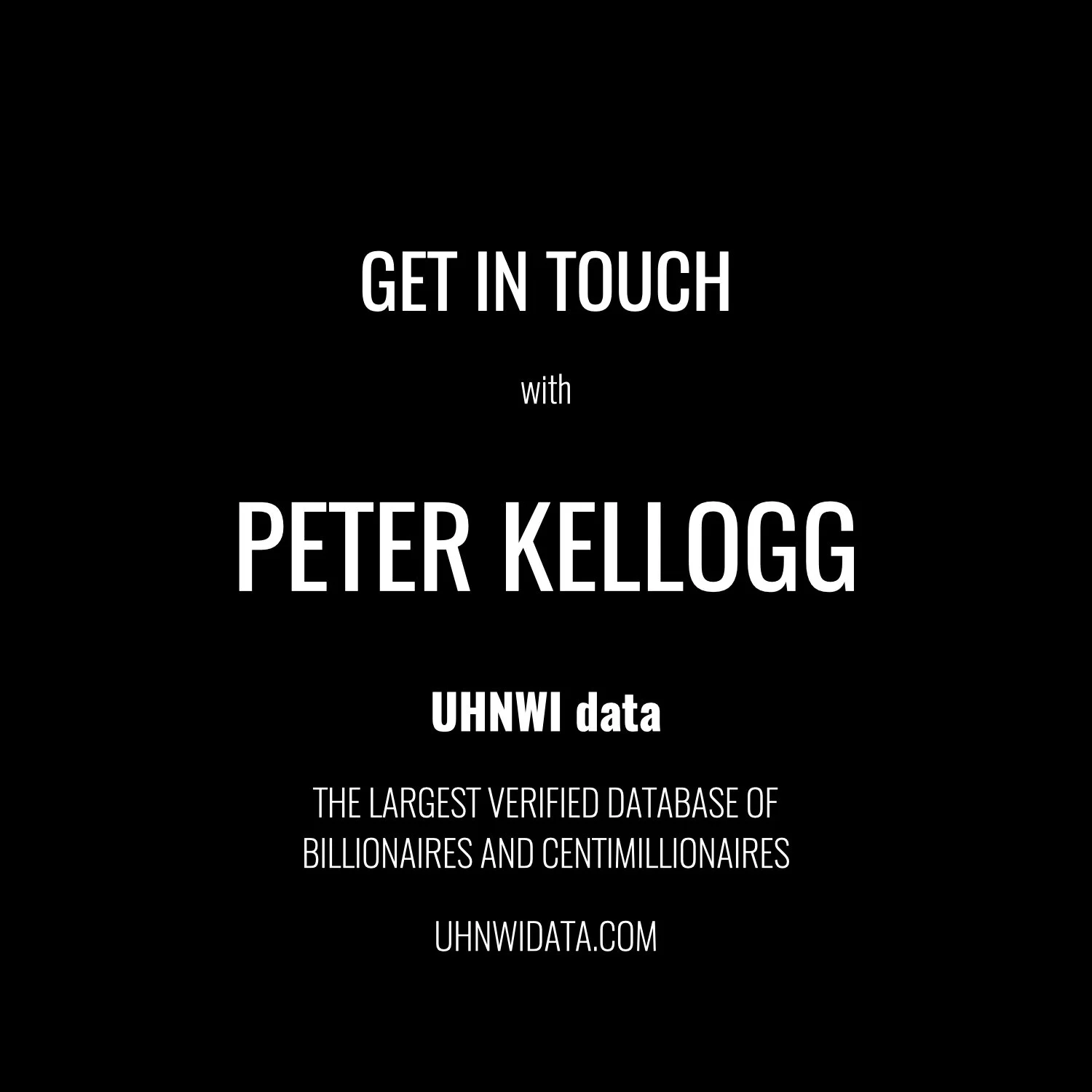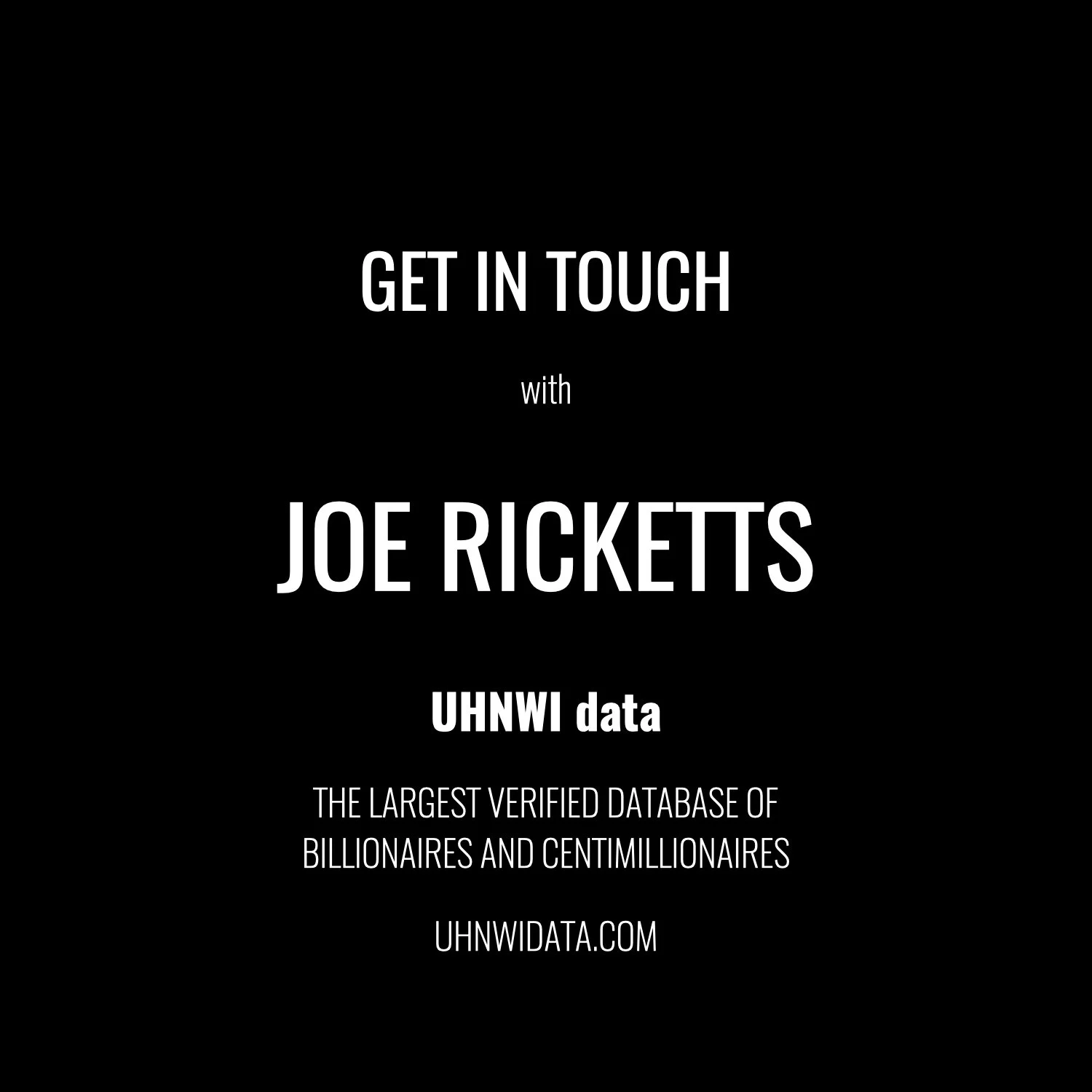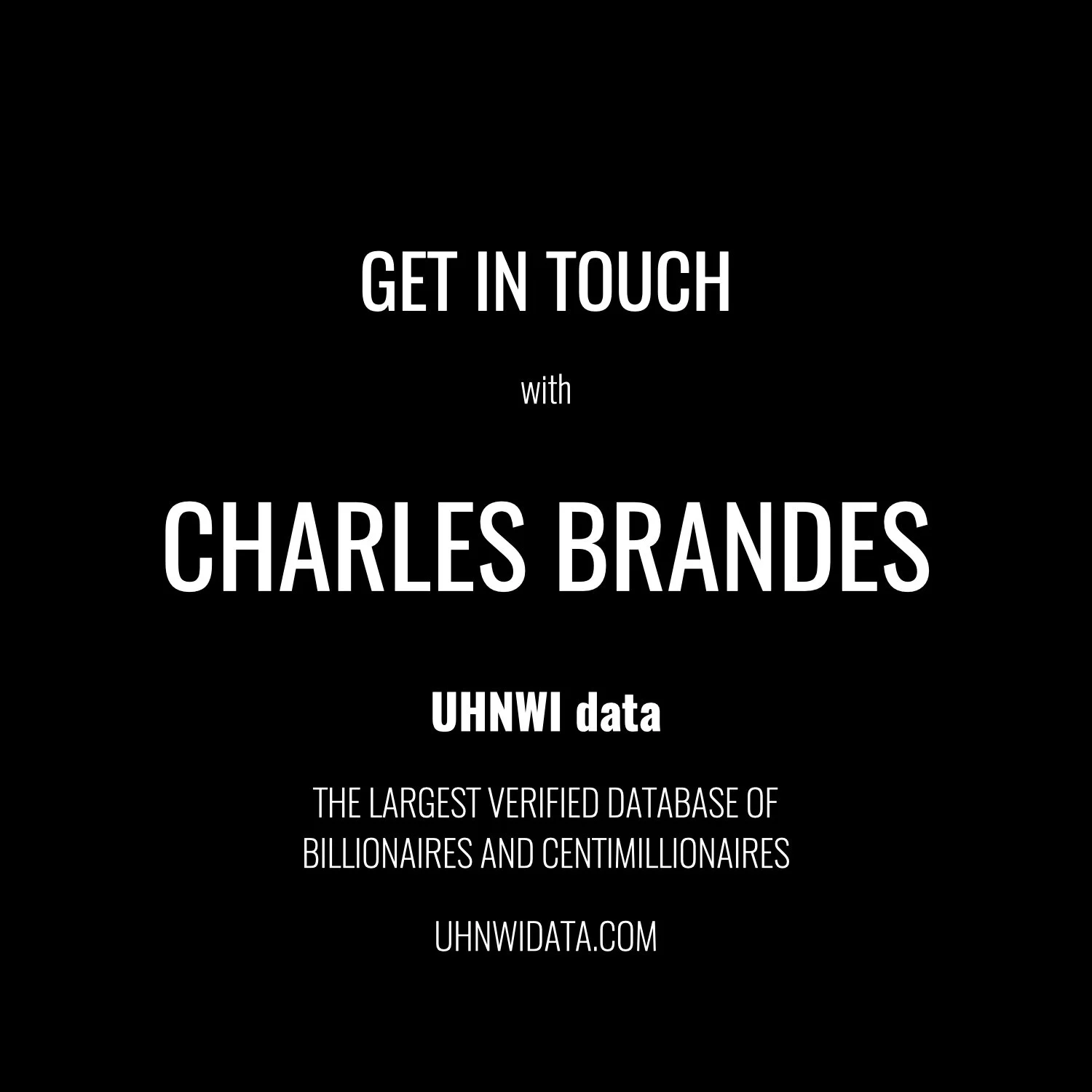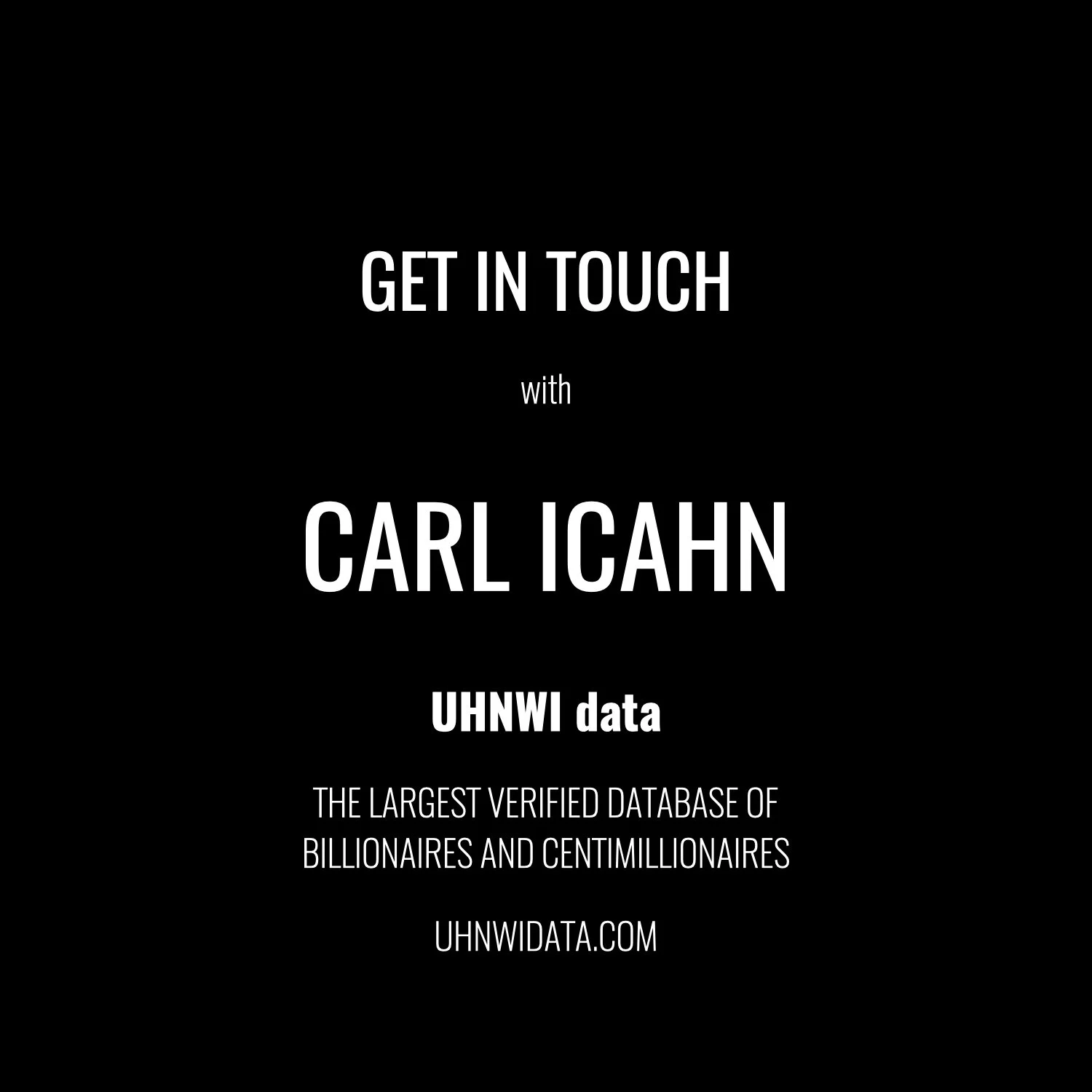J. Joe Ricketts (born 1941) is an American billionaire businessman and philanthropist who founded the discount brokerage firm First Omaha Securities in 1975, which grew into TD Ameritrade, a pioneer in online trading that was acquired by Charles Schwab in 2020 for $26 billion.[1][2] Based in Omaha, Nebraska, and later headquartered there, the company innovated with early telephone and internet-based trading platforms, managing trillions in client assets at its peak.[1] Ricketts' family, through a trust, acquired the Chicago Cubs Major League Baseball team in 2009, overseeing renovations to Wrigley Field and the franchise's first World Series win in 108 years in 2016.[3] His net worth is estimated at approximately $4 billion as of recent assessments, derived primarily from his stakes in financial services and sports holdings.[3] Beyond business, Ricketts supports philanthropy via foundations emphasizing education reform, Catholic-inspired retreats, and wildlife conservation, reflecting a commitment to stewardship and opportunity.[4] Politically conservative, he has donated millions to Republican causes, including super PACs opposing government spending and supporting candidates like Donald Trump, though family members hold varied ideological views.[5]
Early Life and Education
Family Background and Childhood
John Joseph Ricketts was born on July 16, 1941, in Nebraska City, Nebraska, the eldest of four children to Florence M. Erhart and Donavon Platte Ricketts.[2][6] The family resided in modest circumstances, later moving to a three-bedroom home in Omaha amid financial constraints that precluded luxuries such as vacations or new automobiles.[6]
Donavon Ricketts, a strict and industrious figure, pursued multiple trades including carpentry, extermination services, small-scale farming, and local business ventures, embodying a working-class ethos without substantial inherited wealth to pass on.[6] Florence encouraged self-sufficiency in her children, reflecting the household's emphasis on discipline and productivity over leisure activities like television viewing.[6][7] This environment fostered early lessons in financial prudence and personal responsibility, as the family navigated economic limitations through consistent labor rather than external support.
Ricketts' childhood experiences reinforced independence from a young age; at eight years old, in the third grade, he began assisting a janitor at the county courthouse in Nebraska City, cleaning stools and performing basic maintenance tasks for several weeks.[7][2] Subsequent jobs included a newspaper delivery route and clerk duties at a grocery store, involving carryout services, shelf stocking, and floor sweeping.[7] These roles, initiated with parental prompting, cultivated a foundational appreciation for work's intrinsic rewards and its role in building enduring value for oneself and dependents.[7]
Academic and Initial Professional Steps
Ricketts earned a Bachelor of Arts degree in economics from Creighton University in Omaha, Nebraska, in 1968, having extended his studies over approximately nine years while working various jobs to cover tuition costs.[3][1]
Upon graduation, he joined Dun & Bradstreet as a branch manager and credit analyst, traveling to small businesses in southeast Nebraska and southwest Iowa to evaluate creditworthiness and operational viability, which honed his understanding of commercial finance and regional economic dynamics.[1][8][9]
He then transitioned to Dean Witter as a registered representative, engaging in securities sales and brokerage activities that provided direct exposure to investment operations and client advisory services.[1][10]
In the mid-1960s, Ricketts married Marlene G. Ricketts, with whom he raised four children—Pete, Tom, Laura, and Todd—establishing a stable family foundation that supported his career shifts amid the demands of entry-level financial roles.[10][1]
These early positions, marked by consistent effort despite modest beginnings and periodic financial pressures, developed Ricketts' practical expertise in business assessment, sales persistence, and securities handling, laying groundwork for subsequent finance-oriented pursuits.[10][9]
Founding and Leadership of TD Ameritrade
Origins and Early Development
Joe Ricketts co-founded First Omaha Securities in 1975 in Omaha, Nebraska, alongside three partners, establishing it as a discount brokerage firm shortly after the U.S. Securities and Exchange Commission eliminated fixed commission rates on May 1, 1975, enabling competitive pricing models.[1][11] The venture targeted individual investors underserved by traditional Wall Street brokerages, which relied on high, standardized fees that limited access to stock trading for smaller accounts.[12] Ricketts' approach emphasized operational efficiency and low overhead in a regional Midwest setting, rejecting the expense-heavy norms of New York-based firms.[13]
The firm quickly adopted negotiated commissions, positioning itself among the early pioneers in the discount brokerage sector that democratized investing by slashing costs—often to fractions of prevailing rates—allowing retail traders to participate without prohibitive barriers.[14] By the late 1970s and into the 1980s, First Omaha integrated emerging technologies, such as automated order processing, to handle trades more swiftly and economically than manual methods dominant at the time.[15] This tech-forward strategy, including the introduction of touch-tone telephone trading by 1988, reduced staffing needs and execution times, fostering scalability without external funding dependencies.[16]
Early growth occurred amid challenges like adapting to post-deregulation competition and enduring market downturns, including the 1987 stock crash, which tested resilience but was navigated through conservative risk management and self-funded expansion.[11] Ricketts' insistence on lean operations—eschewing venture capital in favor of reinvested profits—sustained the firm's independence and focus on client-centric innovations over speculative scaling.[17] These foundations laid the groundwork for the entity's rebranding and restructuring into Ameritrade, emphasizing accessible, technology-driven brokerage services.[1]
Expansion, Innovations, and Mergers
During the 1990s, Ameritrade transitioned aggressively toward online trading platforms, capitalizing on the internet's emergence to offer low-cost, self-directed brokerage services to retail investors.[18] This shift positioned the firm as an early leader in electronic trading, with client accounts expanding from approximately 98,000 in 1997 to 560,000 by 1999 amid surging individual investor participation in stock markets.[18]
Joe Ricketts served as CEO until 2001, during which he prioritized technological infrastructure to streamline trades and reduce costs, fostering a culture focused on operational efficiency and client empowerment through accessible tools.[19] He then assumed the role of chairman, guiding strategic decisions amid continued scaling.[19] Under this leadership, the company pursued acquisitions to bolster its platform capabilities and market reach.
A pivotal expansion occurred on January 24, 2006, when Ameritrade acquired TD Waterhouse USA from Toronto-Dominion Bank for $2.9 billion in cash and stock, forming TD Ameritrade Holding Corporation.[12][20] The merger integrated complementary retail brokerage operations, adding substantial client assets and enhancing cross-border capabilities while solidifying TD Ameritrade's status as a top U.S. online broker.[21]
Further innovation followed with the January 2009 acquisition of thinkorswim Group Inc. for $606 million, incorporating sophisticated options trading software and real-time analytics tools that appealed to active traders.[22][23] TD Ameritrade complemented these platforms with extensive educational resources, including interactive courses and research tools designed to equip retail investors with knowledge for informed decision-making.[24] By the mid-2000s, these efforts contributed to client growth into the millions, driven by low commissions and technological accessibility that democratized trading beyond traditional brokerages.[25]
Transition, Sale, and Legacy
Ricketts transitioned from active leadership at TD Ameritrade in stages, relinquishing the CEO role years after the company's public offering in 1997 and stepping down as chairman in 2008 during the annual shareholder meeting.[26][27] He fully retired from the board in September 2011, ending direct operational involvement while the Ricketts family retained significant ownership stakes through trusts, which continued to hold approximately 15% of the company's stock into the 2010s.[28][29]
The firm's ownership structure shifted decisively with its acquisition by Charles Schwab Corporation, announced on November 25, 2019, as an all-stock transaction valued at approximately $26 billion, and completed on October 6, 2020, following regulatory approvals.[30][31] This merger created a combined entity managing about $6 trillion in client assets across 28 million brokerage accounts, with the Ricketts family's lingering stakes positioned to benefit from Schwab's subsequent stock performance rather than operational control or external subsidies.[32] As of October 2025, Joe Ricketts and his family's net worth stood at $8.4 billion, largely attributable to these holdings' appreciation tied to market-driven growth in discount brokerage services.[3]
Ricketts' legacy in the sector centers on pioneering accessible, low-cost online trading that disrupted traditional full-service brokerages, enabling ordinary investors to bypass high commissions and advisory dependencies long dominated by institutional elites.[33] Under his foundational influence, TD Ameritrade expanded from niche operations to serve over 11 million clients by the late 2010s, fostering self-directed investing through innovations like commission-free trades on select products and robust trading platforms.[34] This model empirically democratized market participation, as evidenced by the firm's client asset growth and the post-merger scale, which amplified retail access without reliance on government intervention, thereby shifting power dynamics in personal finance toward individual agency.[35][31]
Diversified Business Ventures
Agricultural and Food Enterprises (High Plains Bison)
Joe Ricketts founded High Plains Bison in 2004, establishing the company as a producer and distributor of premium, all-natural bison meat products as an alternative to conventional red meat.[9][36] The venture emerged from Ricketts' post-retirement activities in ranching, beginning with domestic bison herds on his Wyoming property in the late 1990s, and expanded into commercial sales targeting health-conscious consumers seeking low-fat, high-protein options without hormones, antibiotics, or steroids.[37][38]
High Plains Bison emphasizes sustainable ranching practices, including rotational grazing and land capacity assessments via tools like the Ranch Vitality Calculator to prevent overstocking and support environmental stewardship on North American high plains ranches spanning regions such as Wyoming.[39] Herds are raised in free-roaming conditions with free-choice natural feeding and minimal human intervention, promoting animal welfare and resource regeneration in contrast to industrial feedlot methods reliant on additives and confinement.[39] These approaches enable market viability through premium pricing for grass-influenced, nutrient-dense meat, achieving operational profitability via direct consumer appeal rather than subsidies.[36]
The company's product line includes steaks, ground bison, roasts, sausages, and other cuts, distributed through grocery retailers, online sales, foodservice providers like Sysco, and restaurants, reflecting Ricketts' application of business acumen to scale a niche agricultural enterprise.[40][41] By 2012, High Plains Bison had grown into a leading branded bison supplier, underscoring the viability of consumer-driven demand for naturally raised proteins.[38]
Entertainment and Media Productions (The American Film Company)
Joe Ricketts established The American Film Company in 2008 as a private venture to finance and produce feature films drawn from verifiable events in American history, with an emphasis on factual fidelity over dramatic embellishment.[9] [42] The initiative reflected Ricketts' interest in countering perceived distortions in mainstream Hollywood output by prioritizing source materials grounded in primary historical records, though funded entirely through personal capital without reliance on government subsidies or public grants.[1]
The company's inaugural release, The Conspirator (2010), directed by Robert Redford, portrayed the post-assassination trial of Mary Surratt, the sole woman charged in the Abraham Lincoln conspiracy, highlighting tensions between military justice and civil liberties. Produced on a $25 million budget, it earned $11.5 million domestically and $15.6 million worldwide, falling short of recouping costs amid limited theatrical distribution and audience appeal for period dramas.[43] Subsequent efforts included Parkland (2013), which examined the chaotic medical handling of John F. Kennedy's assassination wounds at Dallas's Parkland Hospital, and Against the Sun (2014), depicting the ordeal of three U.S. Navy aviators stranded at sea after a 1942 crash in the Pacific. These productions maintained the focus on lesser-known facets of pivotal U.S. events but similarly generated modest revenues—Parkland under $1 million domestically—illustrating the commercial hurdles for specialized, evidence-based narratives in a market dominated by high-concept blockbusters.[1]
Overall, the company's output remained constrained to three feature films, each adhering to rigorous historical consultation but struggling against broader industry preferences for ideologically inflected storytelling. Operations effectively wound down by the mid-2010s, serving as a case study in the viability risks of niche, privately financed cinema that eschews taxpayer support or formulaic appeals to mass sensibilities.[1]
Sports Ownership (Chicago Cubs)
In 2009, the Ricketts family, through a trust led by Joe Ricketts' son Tom Ricketts, acquired a 95% controlling interest in the Chicago Cubs franchise, Wrigley Field, and related assets from the Tribune Company for $845 million, with the deal finalized on October 27.[44][45] The purchase positioned the family as principal owners of the storied Major League Baseball team, which had not won a World Series since 1908 at the time of acquisition. Tom Ricketts assumed the role of team chairman and later president, overseeing operational decisions while emphasizing long-term financial stability over short-term expenditures.[46]
Under the Ricketts family's stewardship, the Cubs achieved their first World Series championship in 108 years on November 2, 2016, defeating the Cleveland Indians 8-7 in Game 7 of a prolonged 10-inning contest at Progressive Field.[47] Tom Ricketts accepted the Commissioner's Trophy on behalf of the organization, marking a pivotal success that ended the franchise's prolonged drought and boosted attendance and revenue streams.[48] The victory, built on strategic player acquisitions and development under president of baseball operations Theo Epstein, validated the family's initial investments in scouting and infrastructure.[49]
The ownership pursued extensive renovations at Wrigley Field, committing nearly $1 billion in private funds to modernize the 1914-era stadium while preserving its historic character, with work spanning from 2014 to 2020 and including expanded seating, improved concessions, and new video boards.[50] Initial plans targeted $575 million in privately financed upgrades, but costs escalated to approximately $740 million due to scope expansions and construction challenges, funded primarily through family equity, team revenues, and minority investor contributions rather than direct taxpayer dollars.[51] The project involved city agreements for revenue-enhancing measures, such as additional signage rights and extended game-day events, which generated public debate over indirect subsidies via hotel tax-backed bonds, though these arrangements ultimately increased the stadium's economic output and supported local returns exceeding initial investments.[52]
Post-2020, following the Charles Schwab acquisition of TD Ameritrade—which provided the Ricketts family with significant liquidity from prior holdings—the Cubs adopted a payroll strategy emphasizing sustainability, with 2024 commitments around $211 million (ranking 10th league-wide) and projections nearing the $241 million luxury tax threshold for 2025 without exceeding it.[53] Tom Ricketts defended this approach as calibrated to revenue realities, avoiding the debt-fueled spending of high-payroll clubs like the Dodgers or Mets, and prioritizing farm system development and controlled risk over aggressive free-agent pursuits to ensure enduring competitiveness.[54] This fiscal restraint, amid fan critiques of middling rankings despite top-tier revenues, reflected a focus on probabilistic long-term value over immediate contention spikes.[55]
Digital Media Initiatives (DNAinfo.com and Straight Arrow News)
In 2009, Joe Ricketts founded DNAinfo.com as a hyper-local digital news platform initially focused on Chicago and New York City, aiming to fill gaps in community-level reporting left by traditional newspapers amid declining ad revenues in the sector.[56] The site emphasized granular coverage of neighborhood events, businesses, and public policy, operating on a subsidized model without profitability expectations in a fragmented local media landscape where audience engagement did not yet translate to sustainable income.[57] By 2017, DNAinfo had expanded to additional markets including Los Angeles, San Francisco, and Washington, D.C., and acquired the Gothamist network of city-specific sites in March of that year to broaden its footprint.[58]
The platform's viability unraveled following a unionization effort by its Chicago editorial staff, who voted 34-18 to join the NewsGuild on October 26, 2017, prompting Ricketts to shutter all DNAinfo and Gothamist operations on November 2, 2017.[59] In his public statement, Ricketts explained that the sites had operated at a loss for years, subsidized by his personal investment to support journalistic aims, but union demands would introduce "a corrosive effect" incompatible with achieving financial independence, rendering continuation untenable without indefinite funding.[60] This episode underscored broader challenges in hyper-local digital news, where high operational costs for specialized reporting clashed with thin advertising margins and audience monetization hurdles, even absent labor disputes.[61]
Ricketts launched Straight Arrow News in June 2021 from Omaha, Nebraska, as a national digital outlet committed to fact-driven, non-partisan coverage that prioritizes empirical evidence over ideological framing or mainstream narrative pressures.[62] Privately funded by Ricketts, the platform aggregates and contextualizes stories from multiple sources, assigning transparency ratings to outlets based on verifiable sourcing rather than endorsing partisan viewpoints, with an explicit goal of restoring public trust eroded by perceived biases in legacy media.[63] Unlike DNAinfo's localized focus, Straight Arrow targets broader audiences by distilling top national stories into concise, source-diverse summaries, avoiding opinionated commentary to appeal across political divides.[64]
By mid-2025, Straight Arrow News reported operational growth, including a 50% surge in app page views following a relaunch in April and substantial increases in unique users, reflecting demand for its model amid skepticism toward polarized reporting.[65] User feedback has highlighted elevated trust levels compared to conventional outlets, attributed to the site's methodology of cross-referencing facts without advocacy, though its independence remains tied to Ricketts' ongoing financial backing in a competitive digital ecosystem.[66] This initiative represents Ricketts' pivot toward scalable, bias-resistant national journalism, contrasting DNAinfo's fate by emphasizing lean operations and audience-centric verification over expansive local infrastructure.[67]
Political Engagement
Advocacy for Fiscal Conservatism
In 2010, Ricketts established Taxpayers Against Earmarks, a nonpartisan advocacy organization dedicated to exposing and eliminating pork-barrel spending via congressional earmarks. The group developed a website to track specific earmark requests by lawmakers, enabling public scrutiny and pressuring politicians to forgo such allocations, which Ricketts viewed as emblematic of government inefficiency and favoritism over merit-based budgeting.[68] [69] This initiative aligned with empirical critiques of earmarks, which had totaled approximately $16 billion in fiscal year 2010 before the group's efforts contributed to a temporary House and Senate moratorium on the practice starting in 2011.[70]
The organization later rebranded and expanded into Ending Spending Inc., shifting focus to broader opposition against wasteful federal expenditures beyond earmarks. Ending Spending aimed to educate taxpayers on the cumulative impact of discretionary spending, producing reports and campaigns that quantified annual excesses—such as duplicative programs costing billions—and urged structural reforms like balanced budgets and spending caps.[71] [72] Ricketts positioned these activities as rooted in opposition to unchecked government expansion, arguing that earmarks and similar mechanisms distort priorities away from essential functions.
Through blog posts and interviews, Ricketts has repeatedly condemned the trajectory of U.S. federal deficits and debt, citing data such as the national debt surpassing $13 trillion in 2010 amid annual deficits exceeding $1 trillion post-financial crisis. He contended that such growth—projected to reach 100% of GDP by the mid-2010s without intervention—undermines long-term prosperity by crowding out private investment and risking inflation or default.[68] [9] These statements emphasized causal links between fiscal profligacy and economic stagnation, drawing on historical precedents like post-World War II debt reduction through spending restraint rather than revenue hikes.
Electoral Contributions and Family Involvement
Joe Ricketts has directed substantial financial resources toward Republican candidates and causes through super PACs and direct contributions, emphasizing fiscal conservatism. In 2012, he planned to allocate up to $10 million from his personal funds to the Ending Spending Fund super PAC for an advertising campaign targeting President Barack Obama's associations with Rev. Jeremiah Wright, but withdrew the commitment following internal family discussions and public backlash. Ricketts later supported Republican efforts in the same cycle by contributing millions to super PACs aiding congressional races and Mitt Romney's presidential bid, including $10 million in television ads and voter outreach to sway Obama voters. His donations have totaled tens of millions across cycles, with OpenSecrets tracking him as a major individual donor to Republican-aligned groups.[73][74][75][76]
Ricketts provided significant backing to Wisconsin Governor Scott Walker's 2016 presidential campaign, personally donating over $1.5 million to the Unintimidated PAC, while the broader Ricketts family contributed more than $5 million collectively to the super PAC in mid-2015. He has also funded super PACs like the Congressional Leadership Fund and American Action Network for House and Senate races, with contributions exceeding $3 million in the 2022 cycle alone to bolster Republican majorities. These efforts align with his advocacy for limited government, though recipients have varied from establishment figures to challengers.[77][5]
The Ricketts family's involvement extends prominently to Nebraska politics, where collective donations have exceeded $10 million from 2014 to 2024, substantially aiding son Pete Ricketts' successful gubernatorial campaigns in 2014 and 2018, as well as his 2022 U.S. Senate run. Family entities and members, including Joe and Marlene Ricketts, funneled funds through PACs like Nebraska Families for Pete Ricketts, influencing state legislative races and ballot initiatives on issues like abortion restrictions. Overall family spending in Nebraska reached at least $18.6 million during Pete's gubernatorial tenure through 2023, representing a significant portion of total election outlays in the state.[78][79][80]
Such contributions, enabled by the 2010 Citizens United Supreme Court decision permitting unlimited independent expenditures, have drawn praise from conservatives for offsetting perceived imbalances in donor influence favoring Democrats, yet faced criticism from opponents as exerting outsized sway by wealthy families in low-spending state races. Empirical data from Federal Election Commission filings confirm the legality and scale, with no violations documented, though detractors argue it amplifies elite voices over broader electorates.[76]
Stances on Policy Issues
Ricketts has consistently championed free enterprise as the primary driver of economic prosperity and innovation. In a 2019 interview, he argued that socialism leads to "misery and poverty," emphasizing instead a balanced free market system with appropriate regulation to foster healthy competition and job creation.[81] He credited the deregulation of the brokerage industry in the 1970s and 1980s with enabling discount commissions and technological disruption, which lowered barriers for individual investors and expanded market access.[10][82]
Regarding fiscal policy, Ricketts has critiqued excessive government intervention and advocated for responsibility in managing national debt. In a 2012 profile, he expressed a desire to restore fiscal discipline reminiscent of earlier eras, positioning himself as a proponent of limited government spending to avoid unsustainable obligations.[9] On income inequality, a 2019 op-ed acknowledged progressive concerns but rejected punitive measures like wealth taxes, arguing that market-driven solutions, such as enhancing education and entrepreneurship, better address disparities without stifling growth.[83]
Ricketts views legal immigrants as vital contributors to economic dynamism, describing them in a 2016 blog post as "restless, determined agents of change" who embody entrepreneurial spirit and drive innovation, akin to historical waves that built American industry.[84] His support for merit-based systems is evident in donations to political efforts targeting Latino voters with pro-growth messages, implying a preference for immigration policies that prioritize skilled and motivated entrants over unrestricted flows.[85]
On cultural issues, Ricketts has decried growing intolerance toward dissenting opinions, warning in a 2020 blog post against public shaming, ostracism, and reducing complex debates to moral absolutes, which he sees as eroding open discourse essential for policy progress.[86]
Philanthropic Efforts
Family Foundations and General Giving
Joe Ricketts established the Opportunity Education Foundation in 2005 to enhance access to quality education for youth worldwide through innovative learning systems.[72] The foundation developed Quest Forward Learning, a research-based approach implemented in over 30 schools globally, including two U.S. high schools fully funded by Ricketts to demonstrate its efficacy in fostering student outcomes such as skill acquisition and academic progression.[87] This initiative has supported educational mobility by providing structured curricula that emphasize value creation and practical competencies, with documented implementation in diverse settings from Africa to the U.S., where it has enabled participants to engage in rigorous liberal arts-style programs often supplemented by scholarships.[4][88]
The Ricketts Conservation Foundation, founded by Ricketts, directs resources toward wildlife preservation and habitat stewardship without partisan alignment.[4] It has financed projects such as the Loon Restoration Project, which contributed to the relocation of loon chicks from robust populations in Maine and New York to Massachusetts, resulting in the state's first historic loon hatch in 2020 and aiding population recovery through empirical monitoring of nesting success.[89] Similarly, support for The Swan Project advances trumpeter swan conservation via research and habitat initiatives, promoting measurable environmental outcomes like species rebound rates.[4] In 2018, the foundation disbursed $467,000 in grants for such efforts.[72]
Through the Joe Ricketts Nebraska Foundation, a private entity with assets exceeding $7.9 million, Ricketts has facilitated general charitable disbursements focused on community and institutional support, including annual grants totaling around $386,000 in 2023 for verified nonprofit programs.[90][91] Additionally, Ricketts personally funded the construction of a retreat property for the First Responders Foundation, enhancing community wellness programs for emergency personnel through operational support that sustains access to restorative services.[92] These contributions underscore a pattern of targeted giving yielding tangible benefits, such as improved educational attainment and ecological stability, as evidenced by project-specific metrics like species reintroduction success and program enrollment data.[93]
Support for Conservative and Libertarian Causes
Joe Ricketts founded the Ending Spending Fund in 2010 as a 501(c)(4) advocacy organization dedicated to promoting fiscal conservatism through efforts to curb federal spending, reduce the national debt, and advocate for policies like balanced budgets and entitlement reforms based on empirical assessments of government inefficiencies.[94] The group, later rebranded as the ESAFund, emphasized data-driven arguments for supply-side measures and limited government intervention, reflecting libertarian priorities of restraining public expenditure to foster economic growth without reliance on unsubstantiated progressive fiscal expansions.[95]
Ricketts extended his support to higher education reforms aimed at preserving free speech and classical liberal principles against institutional progressive dominance. In January 2024, New College of Florida announced a partnership with Ricketts, including a donation to fund an online liberal arts degree program featuring Great Books curricula developed in collaboration with his Ricketts Great Books College initiative.[96] This effort aligned with the institution's ongoing restructuring under state oversight to prioritize merit-based inquiry and viewpoint diversity over ideological conformity.[97]
On May 17, 2024, Ricketts delivered the commencement address at New College, urging graduates to embrace personal accountability, entrepreneurial risk-taking, and open discourse amid challenges to free expression on campuses.[98] Despite interruptions from protesting students, his remarks underscored causal links between individual initiative and societal prosperity, countering narratives that frame such advocacy as fringe by grounding it in verifiable economic outcomes like innovation-driven wealth creation.[99]
The Ricketts family foundations have similarly aligned with these priorities, channeling grants to initiatives defending election processes through transparency measures and bolstering free speech advocacy groups that prioritize empirical election data over unsubstantiated fraud claims or suppression tactics.[100] This targeted philanthropy highlights a commitment to policy realism, drawing on historical precedents where fiscal discipline and institutional safeguards have sustained democratic integrity without veering into partisan overreach.
Major Controversies
Proposed 2012 Anti-Obama Advertising Campaign
In May 2012, Joe Ricketts, founder of TD Ameritrade, considered funding a proposed $10 million advertising campaign through the Ending Spending Action Fund, a super PAC he supported, to highlight President Barack Obama's long-standing association with Rev. Jeremiah Wright, the pastor of Trinity United Church of Christ where Obama had been a member for nearly two decades.[101] [102] The plan, developed by Republican strategists, aimed to draw on public records of Wright's controversial sermons—such as his 2003 statement "God damn America" and advocacy of Black Liberation Theology—to argue that Obama's worldview was influenced by these views, framing it as a factual critique rather than personal attack.[103] [73]
Ricketts reviewed the proposal but ultimately rejected it following internal discussions, with his representatives stating it was "dead on arrival" and that he preferred to focus expenditures on policy critiques of government spending over associations with Wright.[104] [105] [106] Ricketts personally affirmed he would not support the ads, emphasizing a desire for campaigns grounded in fiscal conservatism rather than revisiting the Wright issue, which had been prominent during Obama's 2008 campaign but was deemed tonally unsuitable for 2012 efforts.[107] [108]
The proposal drew immediate criticism from media outlets and Democrats, who characterized it as racially provocative and an attempt to exploit racial divisions, despite its reliance on documented public statements and Obama's own admissions of the association in his 2008 memoir and speeches.[73] [109] [110] Proponents, including the strategists behind the plan, defended it as a legitimate examination of ideological influences based on verifiable facts, while presumptive Republican nominee Mitt Romney disavowed it, stating campaigns should address issues like the economy rather than faith or character.[111] [112] No ads were produced or aired, and the episode had no discernible effect on the 2012 election outcome, in which Obama secured re-election, but it underscored the heightened scrutiny faced by major donors in super PAC-driven campaigns.[113] [114]
Email Communications Scandal
In February 2019, the news outlet Splinter published a cache of emails from Joe Ricketts, dating primarily to the 2000s and early 2010s, in which he forwarded racist jokes targeting African Americans and anti-Muslim tropes, including references to Islam as a "cult" and conspiracy theories about Barack Obama.[115][116] These communications were exchanged mainly among Ricketts family members and a small circle of associates, often in the form of humor or venting.[117] Ricketts acknowledged forwarding "a few" such emails but stated they were "clearly inappropriate" and did not reflect his core beliefs, emphasizing his history of philanthropic actions supporting diverse causes as evidence to the contrary.[115][118]
The leaks occurred amid heightened scrutiny of the Ricketts family's business and political ties, including the Chicago Cubs ownership and Pete Ricketts' roles as Nebraska governor and Republican National Committee finance chairman.[118] Tom Ricketts, Chicago Cubs chairman, publicly distanced the team from the emails, describing them as "racially insensitive" private exchanges not aligned with organizational values, while affirming his father's instilled principles of hard work and integrity.[117] Pete Ricketts separately disavowed the content, stating he was unaware of the emails until publication and that they did not represent family views, yet faced no formal repercussions and continued in public office.[118]
Critics, including Muslim advocacy groups like CAIR and Democratic figures, interpreted the emails as evidence of underlying bias influencing the family's conservative political and business decisions.[119] Defenders, including family statements, countered that such crude private humor is a widespread human behavior across demographics—supported by social research on informal communications not correlating directly with public actions or causal decision-making—and does not override Ricketts' disavowals or verifiable conduct.[118][116] The incident prompted short-term backlash, such as Creighton University withdrawing a planned honor for Joe Ricketts, but did not lead to sustained professional consequences for family enterprises.











